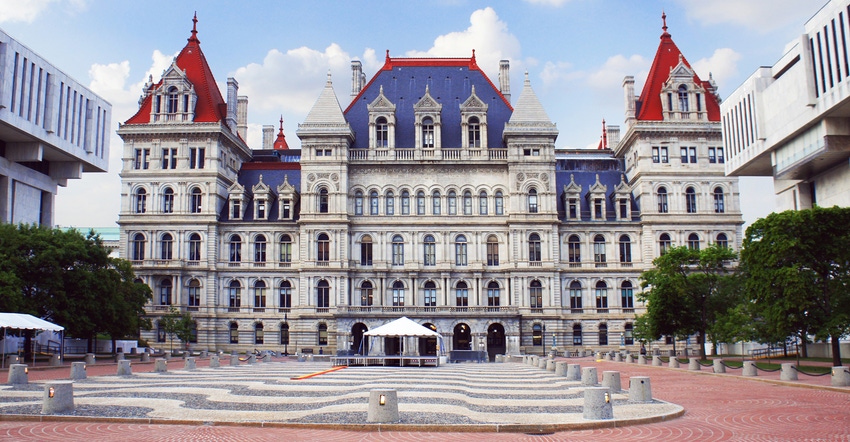May 24, 2021

It seems like every year this time of year my email gets flooded with “industry alerts” about things happening in Albany, the state capital of New York.
Unfortunately, like clockwork, none of it happens to be good news, at least when it comes to agriculture.
Just weeks before the legislature ends its 2021 session, “The Birds and Bees Protection Act” — SB699B — which would ban any seeds treated with neonicotinoids, is gaining momentum.
At a news conference last week, Brad Macauley, a Livingston County farmer, said that a ban on neonicotinoid-coated seeds would have many repercussions. He says that he’s adopted many climate-friendly ag practices on the farm, and neonic-coated seeds have been a good way to help control challenging bugs and help safeguard his crops.
Without these sorts of seed treatments, he would have to use more foliar sprays or even use chemistries that might be even more harmful to beneficial bugs.
“The chemistry we use today is not his [grandfather’s] chemistry," Macauley says. "It is less than an ounce per acre, applied directly over the seed, and we’ve developed [best management practices] to help the pollinators."
Jeff Williams, director of public policy for New York Farm Bureau, says there have been other bills to ban neonicotinoid pesticides across the board, but this bill, which is much more targeted, has gained lots of momentum.
“They’re actually going after the seed treatments that are actually benefiting the industry," he says. "They’re trying to pick off what they view as low-hanging fruit but is counterintuitive to their argument."
Now, there are some caveats. If the commissioner of ag determines that no good alternative to neonic-coated seeds are available, or if costs on farmers are too high, then the bill wouldn’t take effect.
The bill has a long way to go, and it will likely be a while before it reaches a full floor vote in the Assembly and the Senate. The session ends June 10.
Then the bill would have to be signed by Gov. Andrew Cuomo, and there’s no guarantee that’ll happen. But just look at the optics. The bill’s primary sponsor, Sen. Brad Hoylman, represents Manhattan, and many of the bill’s co-sponsors are either from New York City or Long Island.
And this isn’t the first time Hoylman has targeted agriculture. Earlier this year, he sponsored two bills that would outright ban glyphosate in the state. He’s also co-sponsor of a bill that would require public schools to offer plant-based food options in food service.
I don’t know what farmers have done to Hoylman that he’s decided to target the industry, but clearly something has gotten his attention. Maybe he’s a vegetarian. Maybe he hates the smell of manure. I don’t know. Or maybe this is just a ploy to win over his constituents.
Whatever the reason, farmers need to take note and say something.
New York farmers have been asked to do a lot the past few years. From having to pay higher wages to employees to mandatory overtime rules, and lots of things in between, it sure looks like the only way any farm can absorb the dizzying array of new rules being put out by lawmakers is by having a full-time person on staff to do it.
I hope that someone will reach out to Mr. Hoylman or any of the other lawmakers in favor of this bill and ask them to visit a farm sometime.
I, quite frankly, am fed up with lawmakers who are either ignorant of agriculture or are just wanting to score points with their constituents dictating to the farm community how to run their businesses.
Farmers shouldn’t be immune to state laws that are intended to protect the greater good, but they also shouldn’t have their livelihoods and businesses threatened just because they might be an easy target. That’s not right.
Enough is enough.
Farmers need to make their voices heard loud and clear about legislation that would directly affect their business and livelihood.
You May Also Like




